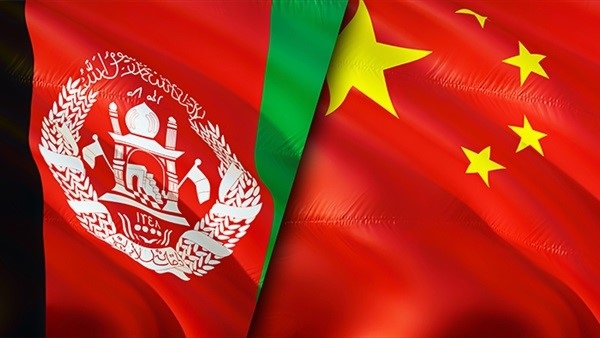Shared interests drive Beijing-Taliban détente

China became the first country to appoint an ambassador to Afghanistan, after the Taliban's takeover in August 2021.
Beijing
announced on September 13 that its ambassador's credentials were officially
presented to the Taliban government during a special ceremony in Kabul.
The
Chinese Foreign Ministry announced that the appointment of the new ambassador
is aimed at developing cooperation and dialogue between the two countries.
It
described Beijing's orientations towards Afghanistan as both 'firm' and 'clear'.
For
his part, the deputy spokesman of the Taliban government, Bilal Karimi, said
the Chinese envoy is the first foreign ambassador to his after the Taliban took
power.
He
added that the Afghan government had approved his appointment documents.
Diplomatic steps, interrelated interests
China's
move to appoint an ambassador to Afghanistan follows Beijing's clear policies
towards the Taliban.
China
was one of the most important countries that had good relations with the Taliban
during the armed conflict in the country before the military withdrawal of the
United States and NATO.
Interrelated
interests between the two parties clearly emerged during the negotiations
between the Taliban and the US government before the signing of the Doha
agreement in February 2020.
China
and the Taliban exchanged political and diplomatic delegations to consolidate
the rules of cooperation between them during various stages.
On
September 22, 2019, the head of the Taliban's political bureau in Doha, Suhail
Shaheen, referred to talks with Chinese officials, including the peace envoy to
Afghanistan.
The
talks, he said, covered the US agreement.
This
means that Beijing and the Taliban had special understandings that were
implicitly taken into account when drafting the Doha Agreement.
The
meetings of the two parties included reviewing the terms of the agreement
before it was signed by the Taliban, according to officials, which contributed
to the argument that the regional forces cooperating with the Taliban,
especially China and Russia, had a hidden role as political pressure cards used
in achieving the movement's most important goals in the journey back to power.
After
the Taliban came to power in Afghanistan, China was one of the leading
candidate countries for recognizing the new government of the movement.
Vice
President of the Asian Programme at the Wilson International Centre for Research
in Washington, Michael Gockelman, who also contributes to the Journal of International
Politics, said China is the closest to international recognition of the Taliban.
He
told The Reference that Beijing does this because of the presence
of common interests with the Taliban.
He
added that Western countries would not recognize the Taliban in the near term
because they would need indicators of the movement's ability to maintain
security and respect political variables related to human rights, women and
pluralism.







